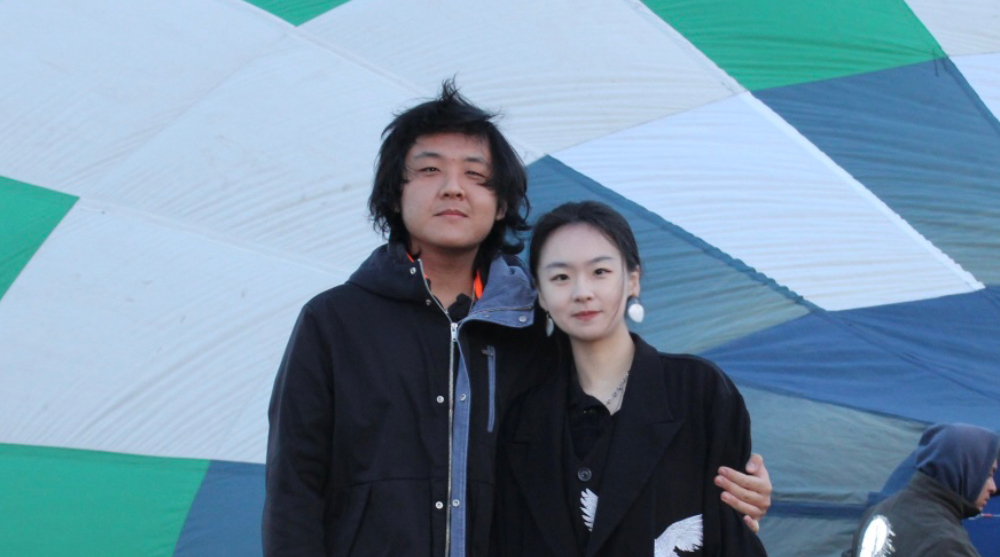We’d like to take the opportunity to introduce you to the 3rd and Student prize winners of our "Virtual Home / Edition #2" competition – Shiyu Ma and Yichi Zhang from United States!

Shiyu Ma and Yichi Zhang
Please tell us about your company (when it was founded, where it is based, how many employees, etc) Alternatively, if you do not have a company, please give us some insights on your own professional/academia background.
We are both students who graduated from the University of Pennsylvania's Advanced Architectural Design program. Throughout our time at UPenn, we dedicated ourselves to researching the possibilities of future architectural spaces by incorporating advanced digital modeling and rendering techniques into design methodologies that directly impact vision and aesthetics. Our commitment to research and experimentation with different design methods never ceases.
Brief information about the projects that you/your company have been involved with. For instance, what scale have you focused on/preferred, any significant projects where the company/ individuals have been Involved?
While pursuing the Advanced Architectural Design program at UPenn, we collaborated on design and research in the Design Innovation Studio and Fabrication Studio, respectively. In the Design Innovation Studio, we conducted research on AI generation-assisted design workflows, focusing on exploring the impact that the use of AI tools has had on design methods and processes.
In the Fabrication Studio, we worked together on a research-based design with the goal of investigating different ways of using digital technologies and production behaviors through a localized design process for a building façade. Here, we explored and applied variations and interactions of 3D and planar compositions and their resulting visual effects, ultimately mapping these variations and interactions to the façade design.
What does architecture mean to you and what is the role of an architect in your society?
Shiyu: Architecture profoundly expresses our collective aspirations and is the medium through which we shape the environments that affect the well-being of individuals and communities. Architecture goes beyond creating built structures; it crafts spaces that contribute positively to people's lives. Architects are not just designers of buildings; they are creators of experiences, facilitators of function, and stewards of the environment. Architects have a responsibility to design spaces that promote the well-being of their occupants, considering aesthetic, functional, sustainable, and community impact factors.
Yichi: For me, architecture is an embellishment of the natural environment and an annotation of lifestyle. Architecture doesn't need to create something excessively or over-promote itself; instead, it should provide an outlet for people's life ideals. In China, with rapid urbanization and fast-paced development, architects should awaken people's spirits through design, enabling everyone to pursue a life truly worth enjoying rather than merely an efficient one.
Why do you participate in architecture competitions?
As mentioned, we continuously engage in research and experimentation with various design methods. Furthermore, the innovation of design methods relies on the development of time and technology as key driving forces. Recognizing the virtual nature of the Internet era, we understand that the difference between this virtual realm and reality represents a breakthrough in design innovation.
Although we had never delved into the design of virtual spaces before, the intriguing theme of the "Virtual Home" competition immediately piqued our curiosity. If we define "home" as "a highly personalized virtual space," its design approach can be derived from, but vastly differs from, a real-world home. On one hand, as a home, it encapsulates people’s living ideals and lifestyles. On the other hand, being virtual allows us the freedom to explore without constraints imposed by reality.
What advice would you give to individuals who struggle to decide whether it would be beneficial for them to participate in architecture competitions?
Shiyu: If you have teammates with whom you can work closely, participating in a competition will reduce your solo workload while enhancing your cooperative skills. It's crucial to know your teammates well and maintain close discussions with them. Understanding your teammates involves recognizing both strengths and weaknesses. When dividing the work, leverage strengths and avoid weaknesses to create a better project. Close discussions entail exchanging design ideas and resolving conflicts, especially in the early concept generation stage. Since the design's conceptualization sets the direction and foundation, we meet roughly every three days during the pre-design and mid-design stages, using numerous sketches for idea exchange and consensus building through logical deduction and conflict resolution. In my six years of architectural studies, I've encountered many who struggled with competitions due to various reasons (poor scheduling, inadequate software skills, ineffective teamwork, etc.). Therefore, the second suggestion is to choose competitions you are genuinely interested in and maintain the mindset of "I really want to win" until submission. This approach makes the competition process more likely to have a positive impact because, given the project's lengthy cycle, strong interest in the design theme and a winning mindset provide constant enthusiasm to overcome difficulties.
Yichi: Architectural designers should embrace challenges and not give up on interesting competitions just because they lack initial ideas.
Top 3 Reasons Why You Should Enter Architecture Competitions
Curious about the value of architecture competitions? Discover the transformative power they can have on your career - from igniting creativity and turning designs into reality, to gaining international recognition.
Learn more



























